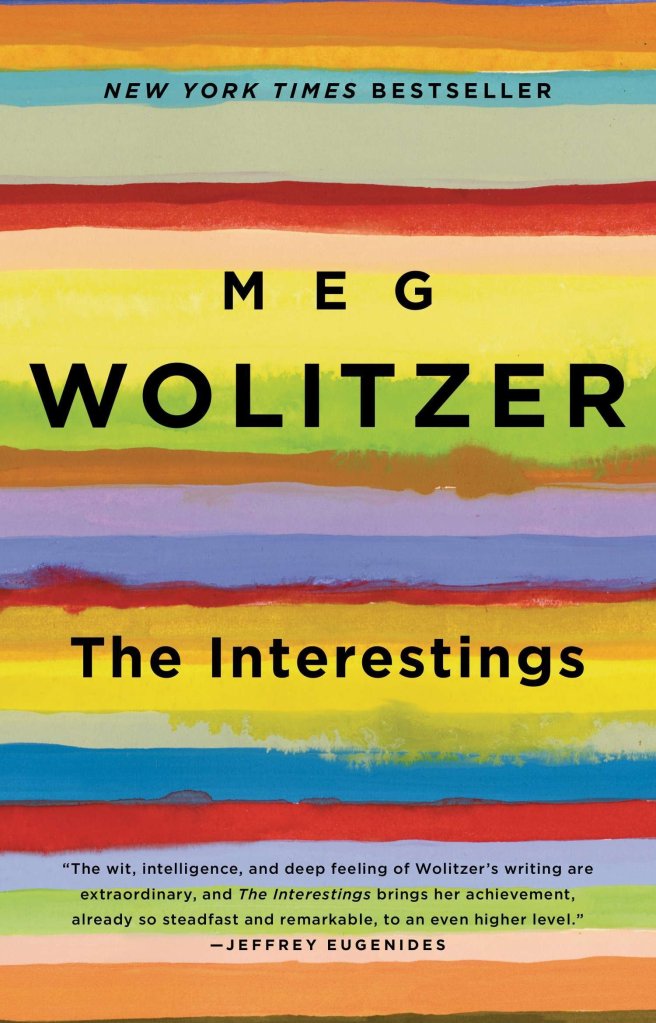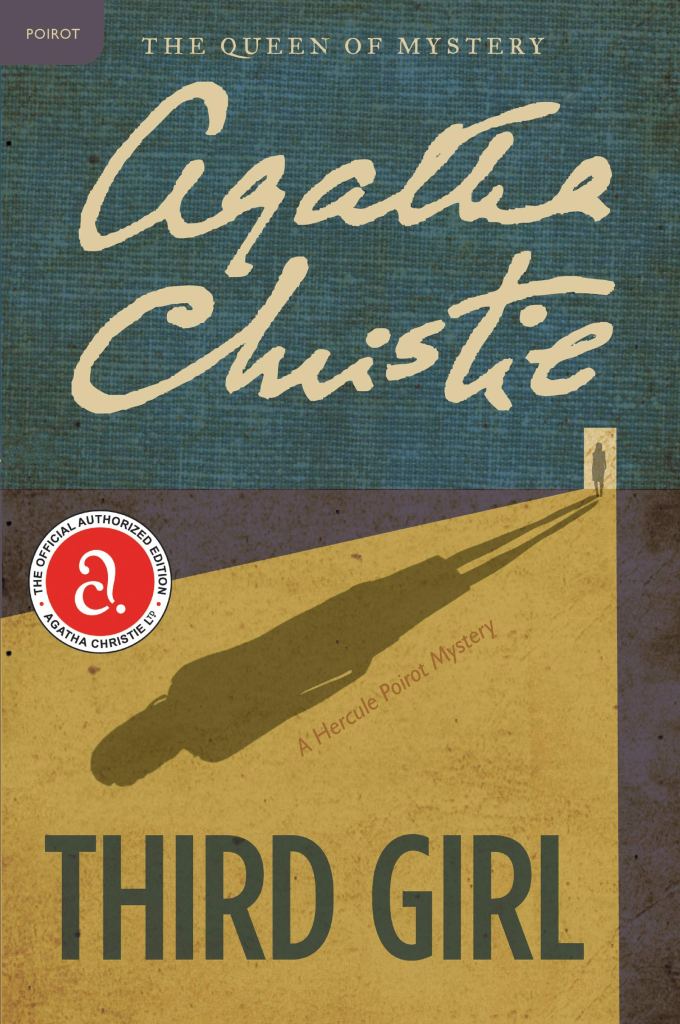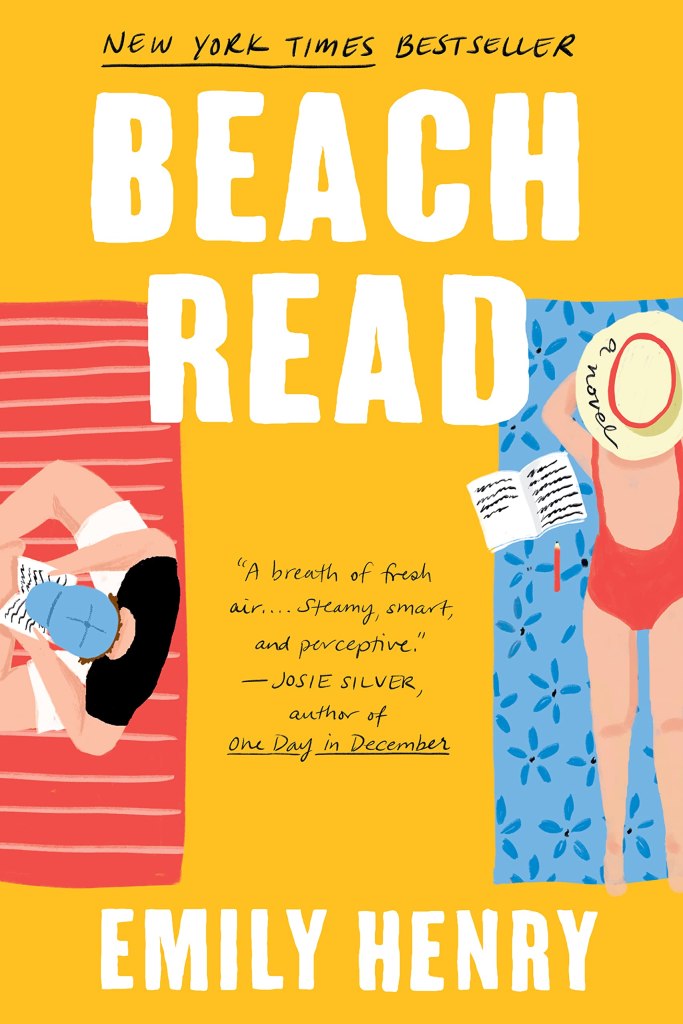It was in September of last year that I picked up this book. I may have read a few pages… but then I put it down, and did not pick it up again. This is fine. I think DNFing a book is perfectly reasonable. Not all books are for all people, and there are too many really good books on the shelves to waste time forcing yourself through a book you’re not in love it.
But then The Interestings by Meg Wolitzer showed up as Available Now on my Libby app, and I remembered that I hadn’t given it much of a shot… So I started listening to it… and found myself really enjoying it.
DNF sometimes means “this book isn’t for me.” But sometimes it means “this book isn’t for now.” I’m glad I gave this one another chance.
Rating:

Mini Synopsis: The Interestings opens with a group of friends who meet at an arts camp during high school and then follows them as their lives unfold. I want to put a number to the group, but I can’t; the book jumps around a little, following some characters in more detail than others, and I’m not 100% sure who the core group is. If I had to choose one as the Main Character, I would pick Jules, whose life is shaped by her camp experience in many far-reaching ways. But this book is as much about the trajectory of the others’ lives, as well. The closest comparison I can make is to A Little Life, which follows four friends, but I would argue that Jude is the clear Main Character.
Like A Little Life, there is more to this story than just longform character sketches. (Although – while there is trauma in this book, there is nowhere near the level of trauma in A Little Life.) While superficially the book is about these friends and how their lives weave and fray, it explores much broader themes. The security and comfort of found family. Betrayal and forgiveness. Art and how it can lift us up and break us down. Self-invention and reinvention. Our expectations for ourselves and the people we love. Marriage and friendships. Parenthood, and its successes and deficits. Death and its effects on the living. Morality. Ambition and the definition of success. Wealth and the doors it opens.
In part because it expands over multiple decades, this book also touches on some of the major concerns underpinning the zeitgeist of specific time periods: sexual assault and believing the victim; the AIDS epidemic; feminism and misogyny; the 9/11 attacks; the folk music scene; mental health. It covers a lot of ground.
What I Liked About This Book: I liked learning about the characters. Jules, her friend Ethan, and her husband Dennis in particular felt well-drawn and believable. As a writer, I’m always falling into the trap of creating more and more backstory for my characters, and so I really enjoy reading backstory. Following a person from point A to point B, with all its meandering and circling-back and stops and starts along the way. This book has a lot of that.
I liked the gentle, non-preachy way that this book explored some of the bigger themes it takes on. In particular, the author plucks at the idea of Being An Artist, tangled up with the idea of Being A Success, and I really liked how all the different artsy young people found their way in the world – some through art, some without.
What I Didn’t Like About This Book: Some of the characters felt a little more like caricatures than like real people. Like they were stuck in to make a point about Beautiful Bad Boys or High Strung Women. Probably it is too much to ask, that every character be given equal weight and depth. But I ended up wondering whether some of the characters were just plot devices and not much more.
This book was sprinkled with random genitalia. I don’t have a problem with genitalia in books per se, but I felt like genitals would just spring out at you without warning. Like you’re going along and suddenly you’re reading about someone’s labia or anus. (This tendency did, however, result in one of my favorite lines of the book: “Everyone and everything was shocked: Ethan, Jules, the hand, the breast, the nipple.”)
And – this may be the most nitpicky thing I’ve ever written – I did not like that one of the prominent characters had the last name Wolf. This is so stupid, but it grated on me every time the narrator read about this character’s family and called them “the Wolfs.” I mean, it’s CORRECT. It’s a last name, not a creature! And yet it drove me nuts, because my brain nudged in every single time to say “WOLVES.” So this is clearly a fault that lies with me, the reader, not with the book itself but it still bugged me enough to list it here.
Finally, my biggest criticism of the book is that it was a little… too meandering. It is not a plot-driven book! Which is okay! There are threads that connect throughout the story, but… I guess I got a little impatient, waiting for things to wrap up. If I hadn’t been listening to it, and if I hadn’t been listening to it at double speed, I wonder if I would have given up on it again. In the end, I’m glad I didn’t. Not because there were startling epiphanies or anything, but because it was a very nicely told, nicely written story.
Should You Read This Book? I found the writing to be engaging and the characters to be interesting, and the way some of the characters and themes come together and break apart and find one another again felt honest and poignant. I also really loved the gentle probing of the subject of art and its value and its different forms.
I think if you like novels about friendship or longer-term coming-of-age novels, you will enjoy The Interestings. Some books that I think are comparable in some ways are: A Little Life, Tomorrow and Tomorrow and Tomorrow, Shotgun Lovesongs, and This Is Where I Leave You. Maybe even The Heart’s Invisible Furies – oooh, or possibly The Cartographers! (Although there is nothing remotely magical about The Interestings.) If you like any of those novels, this book should resonate with you.



